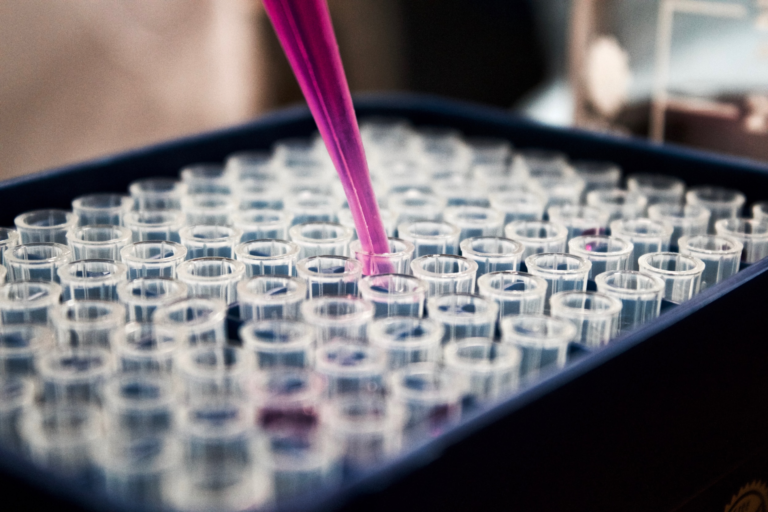
Alcohol as Stimulant and Depressant: Alcohol is one of the most widely used psychoactive substances in the world. It is consumed by people of all ages, genders, and cultures, and is often associated with social gatherings, celebrations, and relaxation. While alcohol’s effects on the brain and body are well-documented, there is often confusion about whether alcohol is a stimulant or a depressant. The truth is that alcohol can act as both, depending on the dosage, individual factors, and other contextual factors.
Alcohol as Stimulant and Depressant: What Makes Alcohol a Stimulant?
Alcohol is known to increase the release of
dopamine in the brain, which is a neurotransmitter associated with pleasure and reward. This increased dopamine release can lead to feelings of euphoria, energy, and sociability. Alcohol also activates norepinephrine, a hormone that is associated with the “fight or flight” response. This can lead to increased heart rate blood pressure, and overall arousal. Additionally, the physical effects of alcohol consumption, such as flushed cheeks and increased body temperature, can contribute to the perception of alcohol as a stimulant.
Alcohol as Stimulant and Depressant: What Makes Alcohol a Depressant?
At the same time, alcohol is also a
depressant, which means that it slows down the central nervous system and reduces brain activity. This can lead to a range of effects, including slowed reaction time, impaired coordination, and reduced cognitive functioning. Alcohol consumption can also lead to a decrease in blood pressure and heart
rate, which can contribute to feelings of relaxation and drowsiness. In extreme cases, alcohol consumption can even lead to unconsciousness and respiratory depression.
How Alcohol’s Effects Vary Based on Dosage and Individual Factors
It’s important to note that
alcohol’s effects can vary widely based on the amount consumed, individual factors, and other contextual factors. Binge drinking, for example, can lead to more pronounced depressant effects, while moderate drinking may have more stimulant effects. Age, gender, and body weight can also play a role in how alcohol affects the body, as can genetic factors.

The Short and Long-Term Consequences of Alcohol Consumption
Alcohol consumption can have both i
mmediate and long-term effects.
Immediate effects can include:
- Impaired judgment and coordination
- Slurred speech
- Memory problems
Long-term effects can include:
- Liver disease
- Heart disease
- Neurological damage
Additionally, alcohol use disorder (AUD) is a serious condition that can have a range of physical and psychological effects.
The Dual Nature of Alcohol and Its Effects on Mental Health
Alcohol use can also have complex
effects on mental health. While alcohol can initially lead to feelings of relaxation and euphoria, it can also exacerbate symptoms of anxiety and depression. In fact, some people may use alcohol as a way to self-medicate these conditions. Alcohol use can also have negative effects on individuals with bipolar disorder.
The Paradoxical Relationship Between Alcohol and Sleep
Alcohol can have paradoxical effects on sleep as well. While it can initially make individuals feel drowsy and help them fall asleep faster, it can also disrupt sleep stages and lead to poorer overall sleep quality. Additionally, alcohol use can exacerbate symptoms of insomnia over time.
The Role of Alcohol in Social Situations

Alcohol is often used in social situations, and its effects on social behavior are well-documented. While low to moderate levels of alcohol consumption can lead to increased sociability and lowered inhibitions, excessive drinking can lead to negative social outcomes, such as alcohol-related violence. Alcohol use can also exacerbate social anxiety in some individuals.
The Importance of Understanding Alcohol’s Dual Nature
Given alcohol’s dual nature and complex effects on both physical and mental health, it’s important to educate individuals on safe and responsible alcohol use. This can include understanding the risks associated with binge drinking, seeking treatment for AUD, and addressing any underlying mental health conditions. Additionally, reducing stigma around seeking help for alcohol-related issues can be crucial in promoting recovery.
Is it possible to experience both stimulating and depressive effects of alcohol at the same time?
Yes, it is possible to experience both stimulant and depressant effects of alcohol simultaneously, as alcohol’s effects can vary based on a range of factors.
Does the type of alcohol consumed affect whether it acts as a stimulant or depressant?
No, the type of alcohol consumed does not necessarily affect whether it acts as a stimulant or a depressant. Rather, other factors such as dosage and individual factors play a larger role.
Can someone be addicted to both the stimulating and depressive effects of alcohol?

Yes, someone can be addicted to both the stimulating and depressive effects of alcohol, as addiction is a complex condition that can involve a range of physical and psychological factors.
How does alcohol use affect sleep quality?
While alcohol can initially help individuals fall asleep faster, it can disrupt sleep stages and lead to poorer overall sleep quality over time.
What are some safe and responsible ways to consume alcohol?
Some safe and responsible ways to consume alcohol include drinking in moderation, understanding the risks associated with binge drinking, seeking help for AUD if needed, and addressing any underlying mental health conditions.

Conclusion
Alcohol is a complex substance that can act as both a stimulant and a depressant, depending on a range of factors. While moderate alcohol consumption may have some health benefits, excessive drinking can lead to a range of negative consequences. By understanding the dual nature of alcohol and its effects on physical and mental health, individuals can make informed decisions about their alcohol use and seek appropriate help if needed.
 Alcohol as Stimulant and Depressant: Alcohol is one of the most widely used psychoactive substances in the world. It is consumed by people of all ages, genders, and cultures, and is often associated with social gatherings, celebrations, and relaxation. While alcohol’s effects on the brain and body are well-documented, there is often confusion about whether alcohol is a stimulant or a depressant. The truth is that alcohol can act as both, depending on the dosage, individual factors, and other contextual factors.
Alcohol as Stimulant and Depressant: Alcohol is one of the most widely used psychoactive substances in the world. It is consumed by people of all ages, genders, and cultures, and is often associated with social gatherings, celebrations, and relaxation. While alcohol’s effects on the brain and body are well-documented, there is often confusion about whether alcohol is a stimulant or a depressant. The truth is that alcohol can act as both, depending on the dosage, individual factors, and other contextual factors.

 Alcohol is often used in social situations, and its effects on social behavior are well-documented. While low to moderate levels of alcohol consumption can lead to increased sociability and lowered inhibitions, excessive drinking can lead to negative social outcomes, such as alcohol-related violence. Alcohol use can also exacerbate social anxiety in some individuals.
Alcohol is often used in social situations, and its effects on social behavior are well-documented. While low to moderate levels of alcohol consumption can lead to increased sociability and lowered inhibitions, excessive drinking can lead to negative social outcomes, such as alcohol-related violence. Alcohol use can also exacerbate social anxiety in some individuals.
 Yes, someone can be addicted to both the stimulating and depressive effects of alcohol, as addiction is a complex condition that can involve a range of physical and psychological factors.
Yes, someone can be addicted to both the stimulating and depressive effects of alcohol, as addiction is a complex condition that can involve a range of physical and psychological factors.








